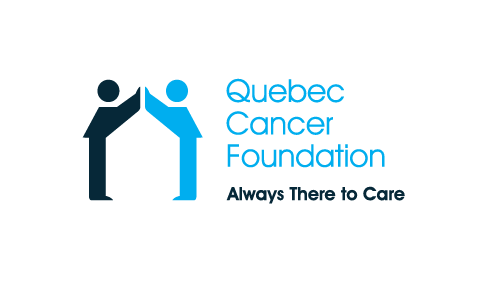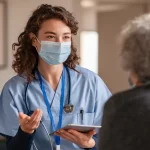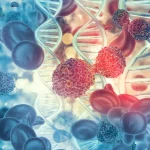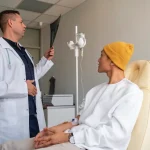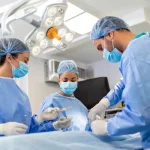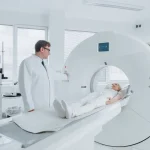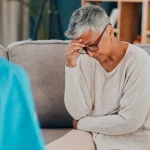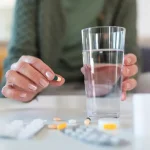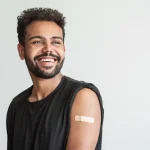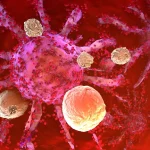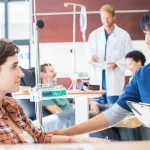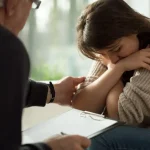Haemorrhaging and bleeding
A decrease in the number of platelets in the blood (thrombopenia or thrombocytopenia), as a result of chemotherapy or radiation therapy, can give rise to prolonged bleeding or hemorrhaging.
- Bleeding: blood loss, bruising (contusions) or petechiæ (small red spots under the skin) can result from a decrease in the quantity or quality of blood platelets, an alteration in coagulation factors or many other causes.
- Hemorrhaging: bleeding, or blood escaping from the normal circulatory system of the heart and blood vessels. Hemorrhages are called “external” when bleeding is visible and “internal” when it cannot be seen (occult bleeding). It can be of capillary, venous or arterial origin. (Source: Wikipedia)
Signs and symptoms
- Appearance of small red spots or bruises on the skin, especially in the lower and upper extremities or in the mucous membranes.
- Prolonged bleeding following a surface cut or scratch.
- Spontaneous bleeding from the mouth, nose, vagina, rectum and urethra.
- Blood in the urine, feces or vomit.
- Abnormal blood flow during menstruation.
- Black stools.
Helpful hints
- Protect your skin:
- Avoid violent or hazardous physical activities;
- Avoid wearing tight clothes and rigid fabrics;
- Use an electric razor;
- Use an emery board nail file.
- Apply firm pressure for 5 to 10 minutes to stop bleeding if you cut yourself. Tell the medical team immediately if the bleeding persists for more than 15 minutes.
- Protect your oral mucosa:
- Avoid foods that may be irritating due to their acidity, spiciness, temperature or texture;
- Protect your lips against chapping and dryness;
- Clean your teeth with a soft brush;
- Gently massage your gums (don’t use dental floss or toothpicks);
- Gargle frequently to keep your mouth clean and bacteria-free;
- Get your doctor’s approval prior to dental care.
- Protect your gastrointestinal mucosa:
- Drink plenty of water (two to three liters per day), unless otherwise specified by the medical team;
- Exercise to prevent constipation;
- Avoid the use of suppositories or strong laxatives;
- Avoid enemas;
- Avoid taking your temperature rectally.
- Protect the lining of your airways:
- Blow gently through both nostrils simultaneously, if you need to blow your nose;
- Avoid blowing hard;
- Sneeze with your mouth open, if necessary.
- Protect the lining of your genitourinary system:
- Drink at least 10 glasses (two to three liters) of fluids a day, unless otherwise directed by your medical team;
- Avoid the use of vaginal douches and suppositories;
- Use a vaginal lubricant during intercourse.
- Have the treatment team verify your platelet count, and if it is abnormally low:
- Avoid doing work that requires constant, demanding effort;
- Avoid making forced exhalation with your mouth closed, while lifting heavy objects, standing up, or when on the toilet;
- Refrain from lifting heavy objects with arms outstretched while leaning forward;
- Avoid taking medications that may prolong bleeding time, e.g. aspirin and its derivatives, anticoagulants and alcoholic beverages.
Prolonged bleeding or hemorrhage can be serious enough to put your life in danger. You are advised to contact the oncology team in the following situations:
- Nosebleed;
- Blood in urine;
- Blood in stool;
- Blood in sputum;
- Presence of several contusions (bruises) on the skin.
Report to emergency in the following cases:
- Continuous nosebleed, even after applying pressure for ten minutes;
- Vomiting blood;
- Blood in the sputum accompanied by difficulty breathing;
- For women: using more than one sanitary napkin per hour.
